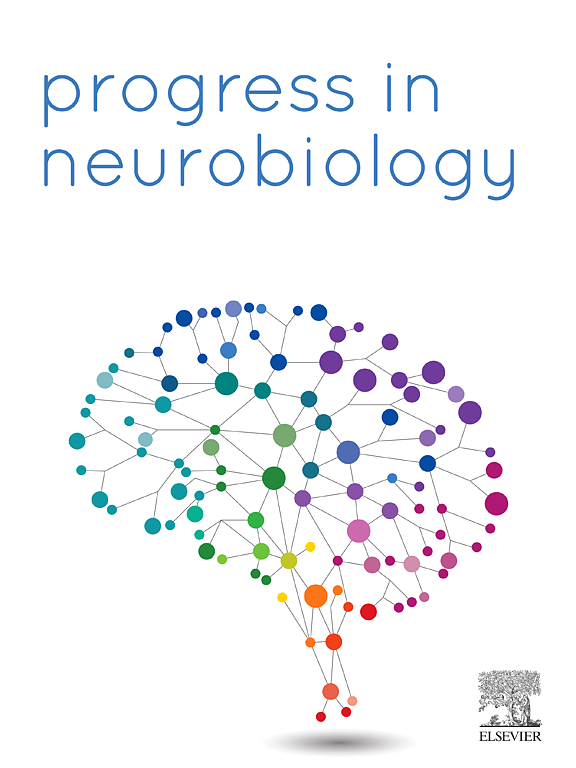A tradeoff between efficiency and robustness in the hippocampal-neocortical memory network during human and rodent sleep
IF 6.1
2区 医学
Q1 NEUROSCIENCES
引用次数: 0
Abstract
Sleep constitutes a brain state of disengagement from the external world that supports memory consolidation and restores cognitive resources. The precise mechanisms how sleep and its varied stages support information processing remain largely unknown. Synaptic scaling models imply that daytime learning accumulates neural information, which is then consolidated and downregulated during sleep. Currently, there is a lack of in-vivo data from humans and rodents that elucidate if, and how, sleep renormalizes information processing capacities. From an information-theoretical perspective, a consolidation process should entail a reduction in neural pattern variability over the course of a night. Here, in a cross-species intracranial study, we identify a tradeoff in the neural population code during sleep where information coding efficiency is higher in the neocortex than in hippocampal archicortex in humans than in rodents as well as during wakefulness compared to sleep. Critically, non-REM sleep selectively reduces information coding efficiency through pattern repetition in the neocortex in both species, indicating a transition to a more robust information coding regime. Conversely, the coding regime in the hippocampus remained consistent from wakefulness to non-REM sleep. These findings suggest that new information could be imprinted to the long-term mnemonic storage in the neocortex through pattern repetition during sleep. Lastly, our results show that task engagement increased coding efficiency, while medically-induced unconsciousness disrupted the population code. In sum, these findings suggest that neural pattern variability could constitute a fundamental principle underlying cognitive engagement and memory formation, while pattern repetition reflects robust coding, possibly underlying the consolidation process.
人类和啮齿动物睡眠时海马-皮层记忆网络的效率和稳健性之间的权衡。
睡眠是大脑脱离外部世界的一种状态,有助于巩固记忆和恢复认知资源。睡眠及其不同阶段如何支持信息处理的确切机制在很大程度上仍然未知。突触缩放模型暗示,白天的学习会积累神经信息,然后在睡眠中进行巩固和下调。目前,还缺乏来自人类和啮齿类动物的体内数据来阐明睡眠是否以及如何重新规范信息处理能力。从信息理论的角度来看,巩固过程应导致神经模式在一夜之间的变异性降低。在这里,通过一项跨物种颅内研究,我们发现了睡眠期间神经群编码的权衡问题,即与啮齿类动物相比,人类新皮质的信息编码效率高于海马弓皮质,清醒时的信息编码效率也高于睡眠时。重要的是,在这两种动物中,非快速眼动睡眠会通过新皮层的模式重复选择性地降低信息编码效率,这表明新皮层正在过渡到一种更稳健的信息编码机制。相反,海马体的编码机制从清醒到非快速眼动睡眠期间保持一致。这些研究结果表明,新信息可以在睡眠中通过模式重复印刻到新皮层的长期记忆储存中。最后,我们的研究结果表明,任务参与会提高编码效率,而药物引起的昏迷会破坏群体编码。总之,这些研究结果表明,神经模式的可变性可能构成认知参与和记忆形成的基本原则,而模式重复则反映了编码的稳健性,可能是巩固过程的基础。
本文章由计算机程序翻译,如有差异,请以英文原文为准。
求助全文
约1分钟内获得全文
求助全文
来源期刊

Progress in Neurobiology
医学-神经科学
CiteScore
12.80
自引率
1.50%
发文量
107
审稿时长
33 days
期刊介绍:
Progress in Neurobiology is an international journal that publishes groundbreaking original research, comprehensive review articles and opinion pieces written by leading researchers. The journal welcomes contributions from the broad field of neuroscience that apply neurophysiological, biochemical, pharmacological, molecular biological, anatomical, computational and behavioral analyses to problems of molecular, cellular, developmental, systems, and clinical neuroscience.
 求助内容:
求助内容: 应助结果提醒方式:
应助结果提醒方式:


